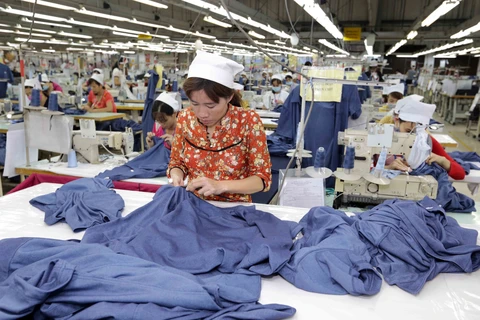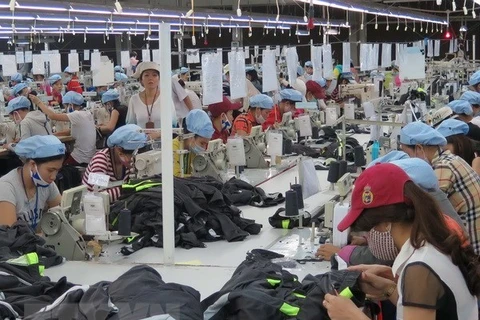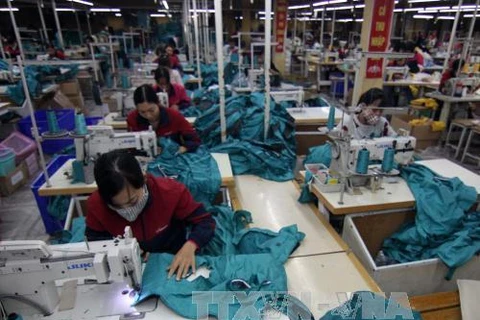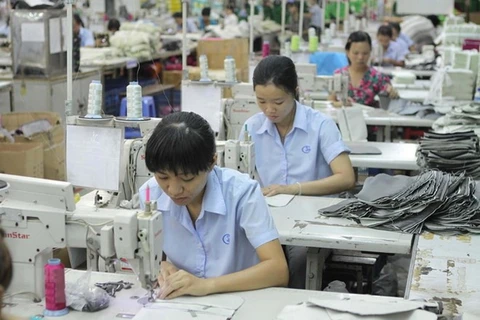Hanoi (VNA) –Many Vietnamese garment firms have maintained high growth in traditional markets this year, including the US, the Republic of Korea, the European Union and member states of the Comprehensive and Progressive Agreement for Trans-Pacific Partnership (CPTPP).
Vice President and General Secretary of the Vietnam Textile and Apparel Association (VITAS) Truong Van Cam said a series of recently-signed free trade agreements (FTAs) is expected to boost the sector.
Since 2001, Vietnam has signed bilateral trade agreements with the US, Japan, China, the Republic of Korea, Australia, New Zealand and India, and joined the World Trade Organisation.
However, global demand for textiles and apparels only grows by 1-2 percent each year, resulting in fierce competition, he said.
According to him, most FTAs have rules on product origin for fibre and fabrics while Vietnam imports up to 80 percent of materials.
At present, Bangladesh cuts corporate tax to 20 percent from 35 percent andlinen fiber and spandex import tax from 10 percent to 5 percent. Pakistan waives material and energy taxes for exported apparel while India reduces fibre import tax to 2.5 percent from 5 percent.
The EU offers zero percent tax to apparel from Cambodia and Myanmar while the US waives tax for several Cambodia goods. Vietnamese apparels are still subject to 17.7 percent and 9.6 percent tax when exporting to the US and the EU, respectively.
VITAS called on the State to devise planning and grant licences to major garment industrial areas to attract investment in weaving and dyeing.
It also urged supporting wastewater treatment in industrial zones and discouraging foreign firmsfrom investing in fiber and sewing.-VNA
Vice President and General Secretary of the Vietnam Textile and Apparel Association (VITAS) Truong Van Cam said a series of recently-signed free trade agreements (FTAs) is expected to boost the sector.
Since 2001, Vietnam has signed bilateral trade agreements with the US, Japan, China, the Republic of Korea, Australia, New Zealand and India, and joined the World Trade Organisation.
However, global demand for textiles and apparels only grows by 1-2 percent each year, resulting in fierce competition, he said.
According to him, most FTAs have rules on product origin for fibre and fabrics while Vietnam imports up to 80 percent of materials.
At present, Bangladesh cuts corporate tax to 20 percent from 35 percent andlinen fiber and spandex import tax from 10 percent to 5 percent. Pakistan waives material and energy taxes for exported apparel while India reduces fibre import tax to 2.5 percent from 5 percent.
The EU offers zero percent tax to apparel from Cambodia and Myanmar while the US waives tax for several Cambodia goods. Vietnamese apparels are still subject to 17.7 percent and 9.6 percent tax when exporting to the US and the EU, respectively.
VITAS called on the State to devise planning and grant licences to major garment industrial areas to attract investment in weaving and dyeing.
It also urged supporting wastewater treatment in industrial zones and discouraging foreign firmsfrom investing in fiber and sewing.-VNA
VNA
























